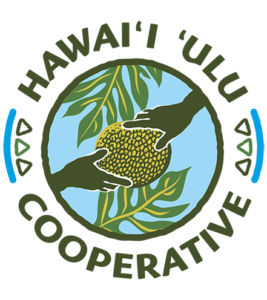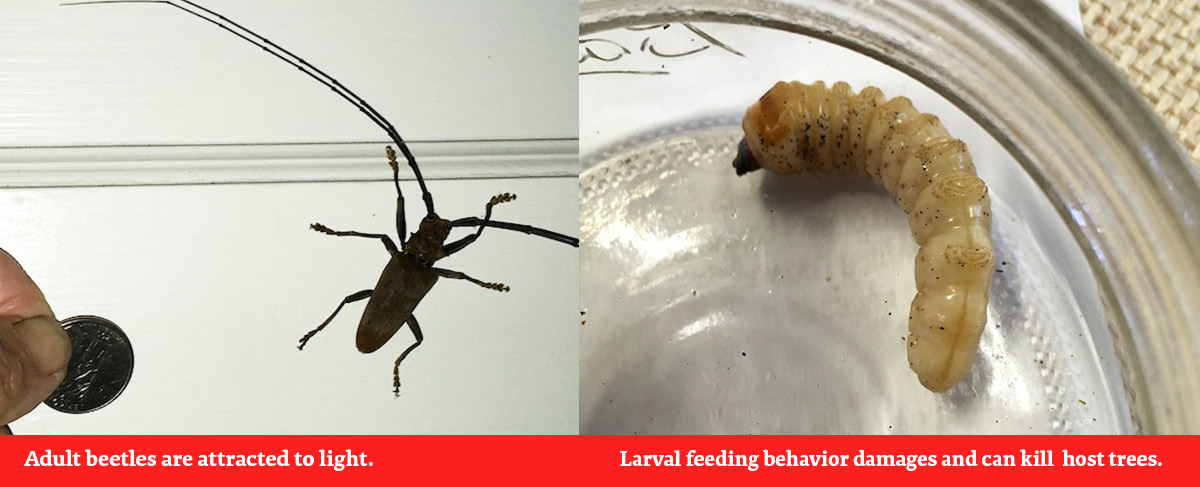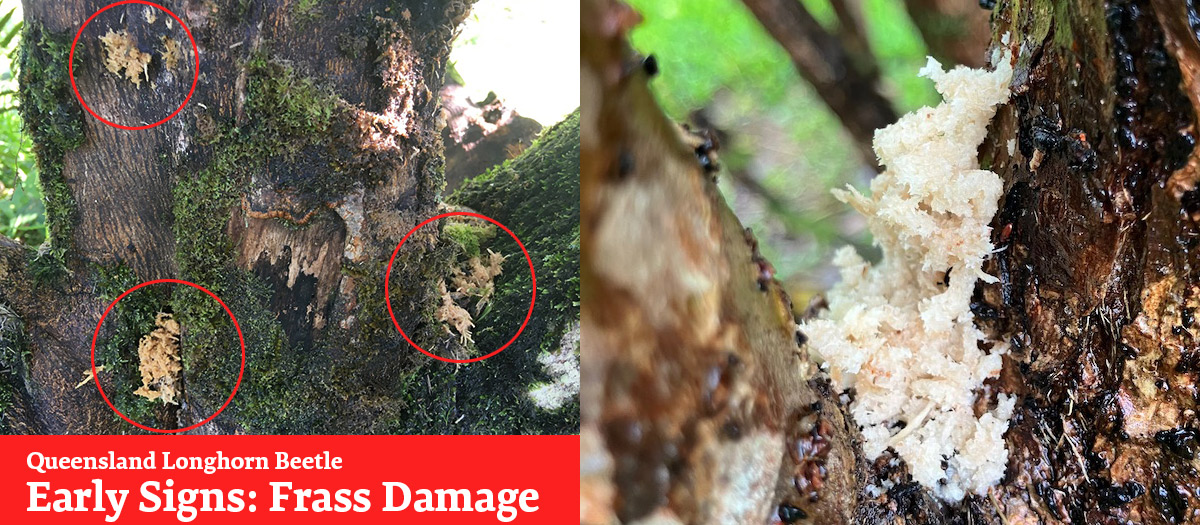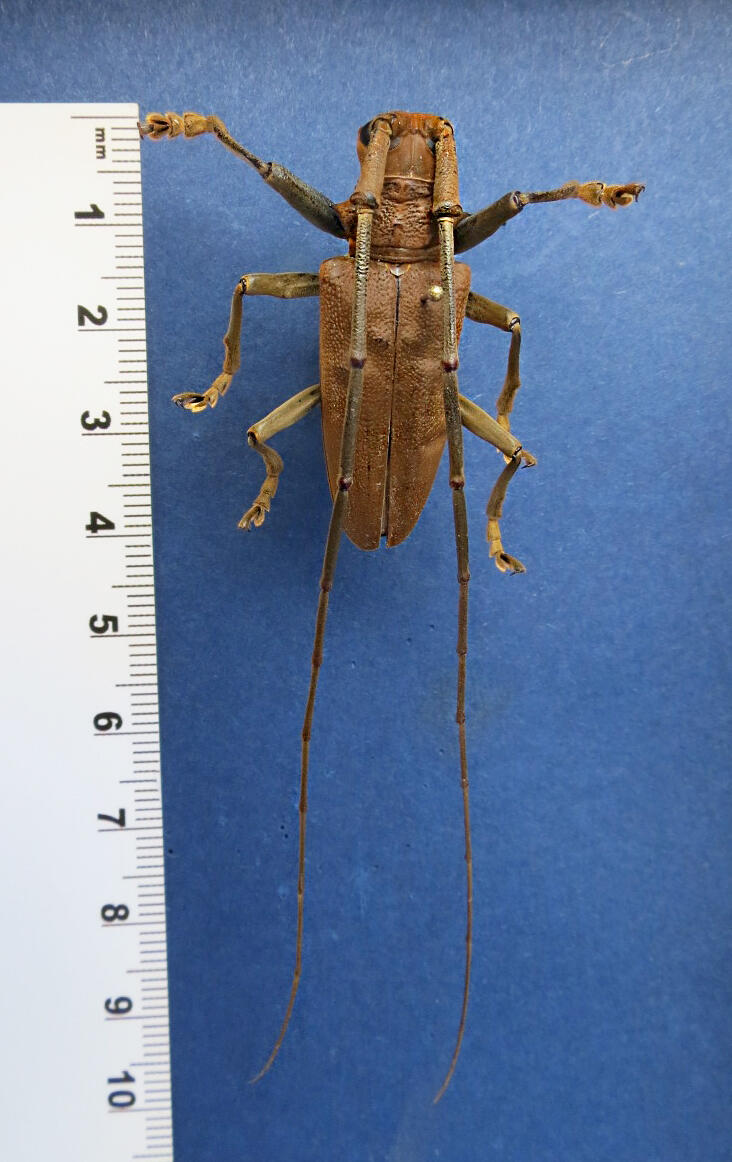Queensland Longhorn Beetle (QLB) Webinar + Treatment
On December 6, 2023, the Hawaiʻi ʻUlu Co-op and the USDA held an informational webinar hosting farmers and researchers working on Queensland Longhorn Beetle infestation research and treatment efforts on the Big Island.
The co-op invited multiple farmer members affected by this pest, along with Roxana Myers from the office of USDA: ARS – PBARC, presenting an informative discussion on the current status of QLB on Hawaiʻi Island and how best to treat infected farms using a insect-parasitic nematode (Heterorhabditis indica) prepared by the USDA and Big Island Invasive Species Committee (BIISC).
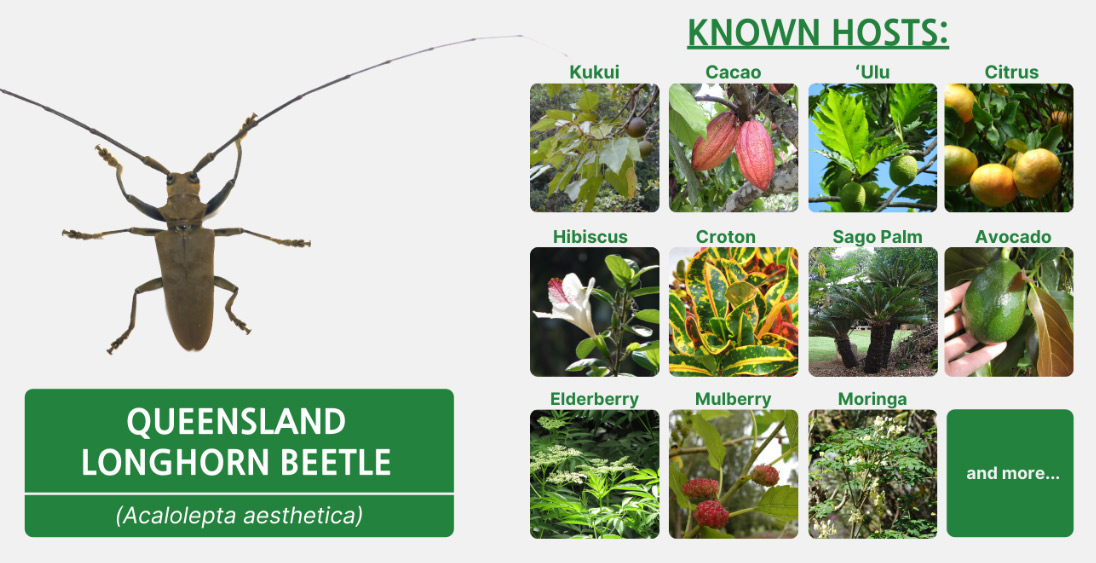
Current Status of Queensland Longhorn Beetle Infestation in Hawaiʻi
- Currently large-scale Queensland Longhorn Beetle infestations are only noted on Hawaiʻi Island and are concentrated to areas of East Hawaiʻi, from in the Hilo – Pahoa – Mountain View areas.
- Hosts include kukui, cacao, breadfruit, citrus varieties, hibiscus, avocado and more
- If you notice a specimen on your farm: Live beetles are being accepted at the USDA-ARS PBARC research center in Hilo (64 Nowelo St, mauka of Komohana above Imiloa).
Current Options for Treatment
- Roxana Myers and the PBARC office are developing nematode treatment trials to inject liquid populations of an endemic beneficial nematode (Heterorhabditis indica) that prey on the larvae of the Queensland Longhorn Beetle.
- One cooperative farmer, Debbie Ward, in the Mountain View area in Upper Puna, had a significant increase in the health of infested trees after the first round of treatment.
- Trials are still in the exploratory stages but seem promising.
- Farmers who notice QLB on their farm are encouraged to contact the Big Island Invasive Species Committee (BIISC) at biisc@hawaii.edu to inquire about access to nematode colonies and signing up for treatment trials.
Nematode Treatments Effect on Sweet Potato Weevils
The nematode treatment being developed by Roxana’s lab is also potentially an effective treatment for farmers having issues with sweet potato weevils in the soil. Farmers experiencing these issues are encouraged to reach out for more information at (808) 959-4306 or roxana.myers@usda.gov.
For more information visit the Big Island Invasive Species Committee (BIISC) website
Click Here for a summary about Queensland Longhorn Beetle from the USGS
